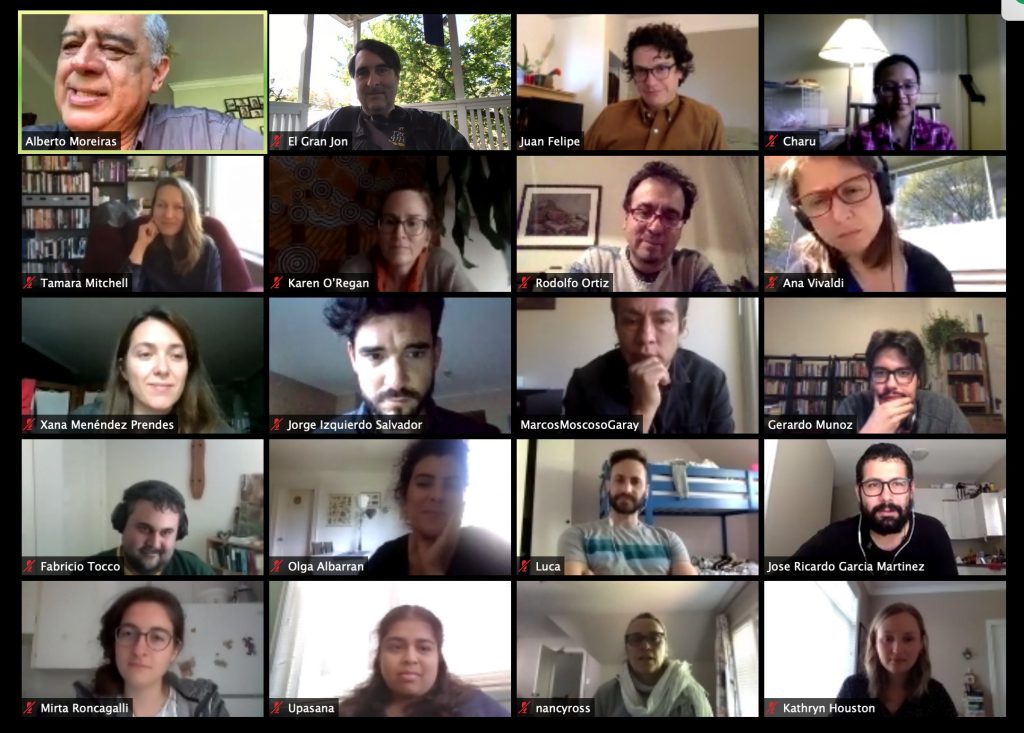 We now move on to a new cycle of sessions, which will culminate in a visit from Argentine political theorist Diego Sztulwark on July 29. This series is organized by Ana Vivaldi, who has invited Sztulwark and suggested the preparatory readings.
We now move on to a new cycle of sessions, which will culminate in a visit from Argentine political theorist Diego Sztulwark on July 29. This series is organized by Ana Vivaldi, who has invited Sztulwark and suggested the preparatory readings.
We begin with fiction and film.
- Fogwill, extract from extract from En otro orden de cosas
- Siete cajas (Paraguay, 2011)
Ana’s comments about the text and the film (and their relationship) are very helpful:
Algo que me resultó increíblemente poderoso de este libro es que describe la transición entre un peronismo revolucionario al momento post dictatoria que ya casi es neo liberal. Es la historia de vida ficcional (y un poco biográfica) de un hombre desde que esta involucrado en la guerrilla y el peronismo, y que luego asciende de ser obrero a intelectual planeando un “cambio cultural” social (dirigido por masones y el opus dei y que parece el Macrismo). Va del Peronismo, la dictadura y luego los 80s.
En la historia se despliegan y rastrean las variaciones afectivas (eso diría yo) que movilizan las transiciones de uno a otro ciclo. Hay algo muy detallado de las relaciones con los objetos cotidianos, que desembocan en el consumo de los 1980s : radios, y secadores de pelos peronistas, texturas de alfombras y autos, ropa y perfumes, sensorial. (La escena inicial quizás valga la pena, un mujer buscando pilas en un cajón y una discusión sobre una frase de Perón). Por estos dos aspectos lo vinculo al trabajo de Diego, como ilustración de los afectos como campo de batalla, en una clase trabajadora/media.
Siete cajas es el complemento subalterno / plebeyo. Transcurre en un mercado de la economía informal: aparece entonces la participación en el consumo, lo central de la informalidad y la multiplicidad. Se muestra diálogos en guaraní sin hacer una revindicación étnica, que coexisten con los comerciantes Coreanos. Lo mueve la necesidad / deseo de hacerse el dia, de ser buen amigo, de consumir, acercarse a una chica, y aparecer en la TV.
La forma en que aparecen lo femenino en el texto (no en esta parte) personalmente me dio nauseas (te hace participar de las fantasía de femicidio del protagonista a su primer pareja), pero quizás sea justamente una forma de pensarlo. Seleccione una parte del medio donde hay algunas de las transiciones.
We will meet on Wednesday, July 8, from 4pm Pacific.
All this will take place on Zoom, of course. Because it’s 2020.
As always, from around 5:30pm onwards, we will continue chatting in a more social vein. You are welcome to have a beer or other beverage to hand.
Also as always, please do feel free to invite others (whether they are in Vancouver or not) to join us. Virtual Koerner’s is fully in Phase Three of lockdown, and we are delighted to see our “bubble” continuing to expand. If anyone wants to be added to the list, they can be in touch with me.
And again, we very much welcome and invite suggestions of texts, speakers, discussion topics, and so on. We especially welcome a) texts written by VK participants (short texts can be posted to our blog), and b) suggestions for linked “cycles” of sessions that might, like Ana’s current cycle, include different kinds of texts on a common theme.
We look forward to seeing you on Wednesday
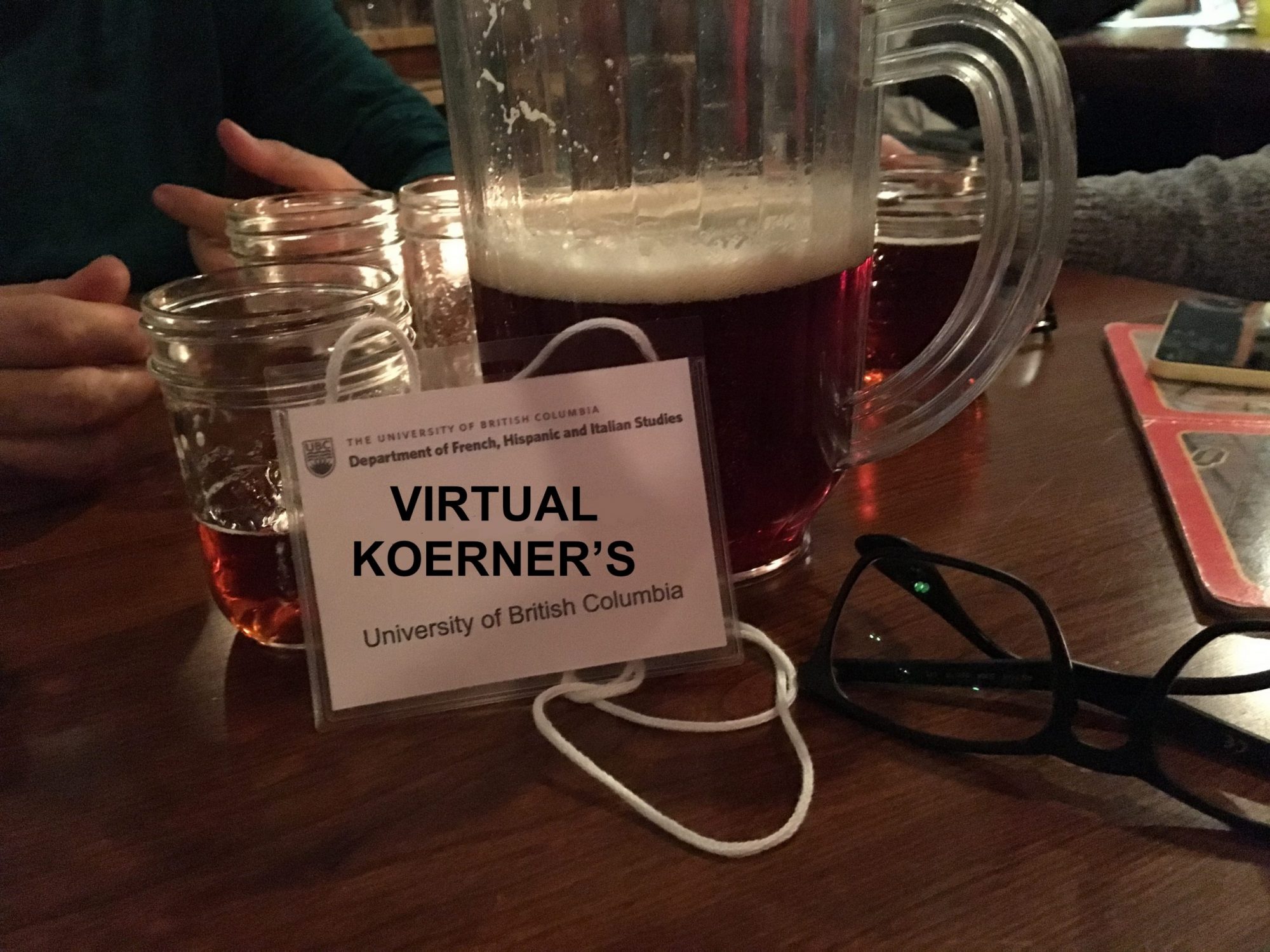
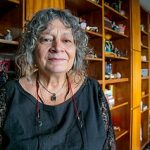 On July 1, we are very pleased to welcome
On July 1, we are very pleased to welcome 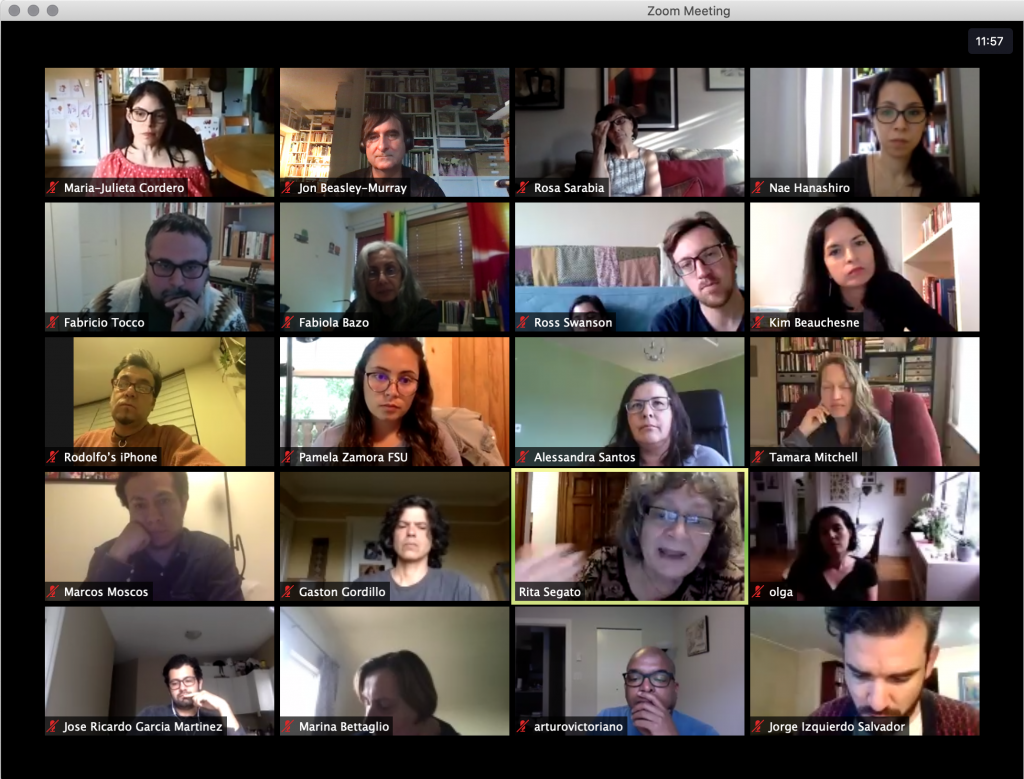
 We are delighted to start today with a discussion with
We are delighted to start today with a discussion with 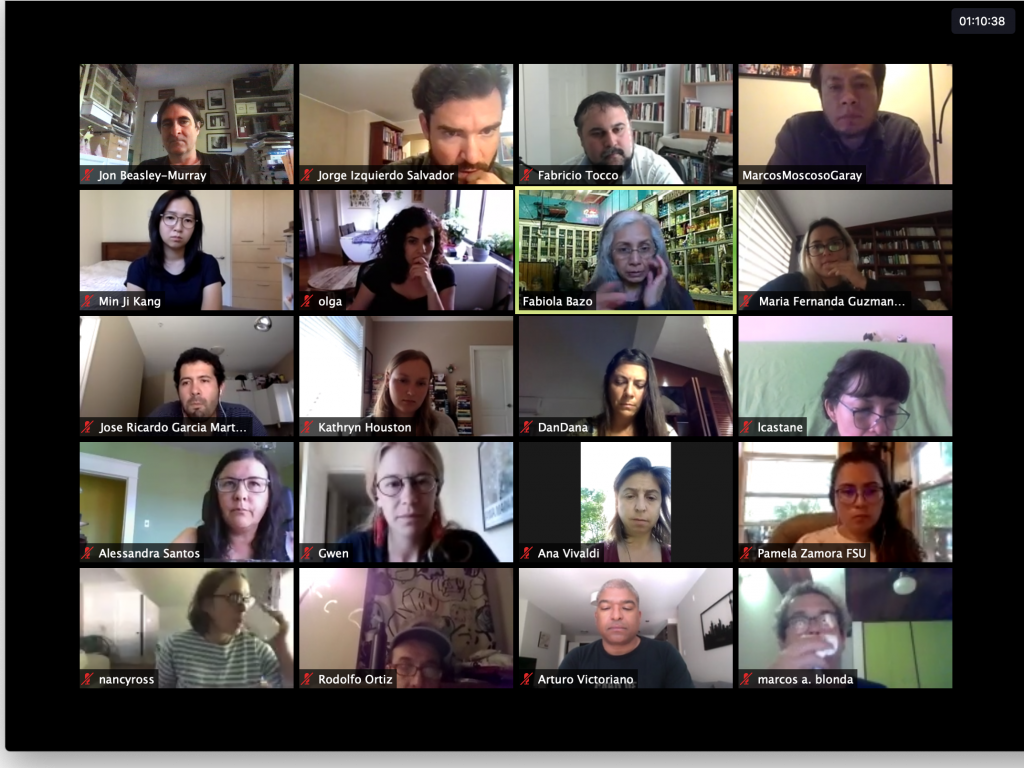
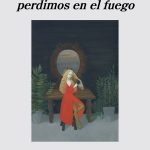 We will be reading and discussing
We will be reading and discussing 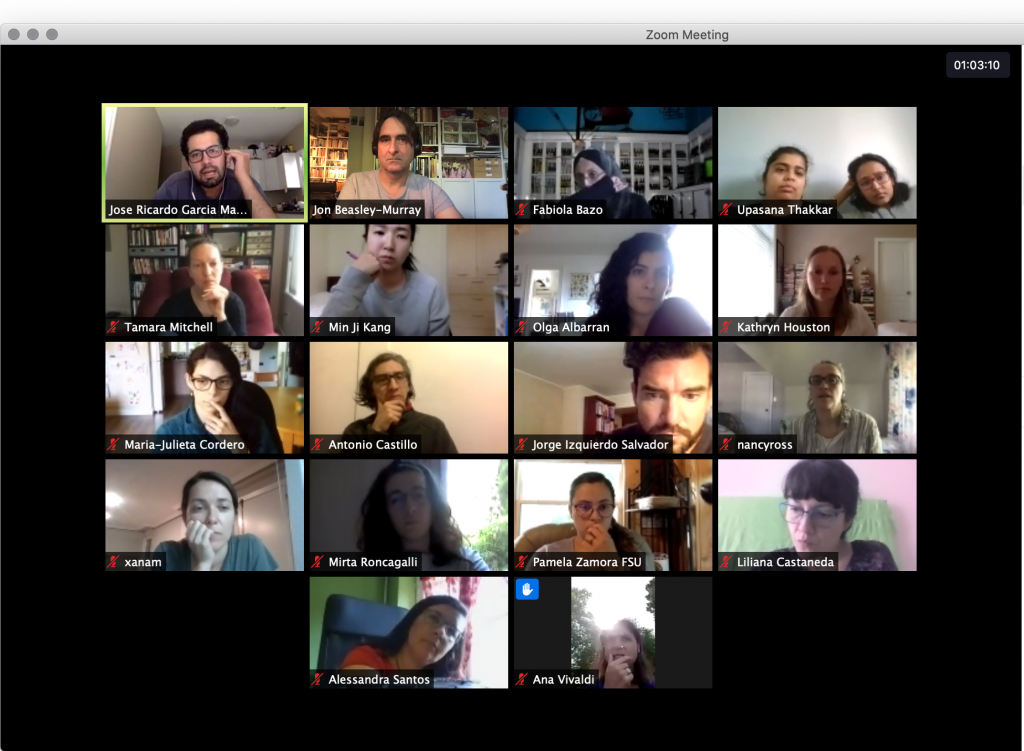
 For June 10, we will be talking with
For June 10, we will be talking with 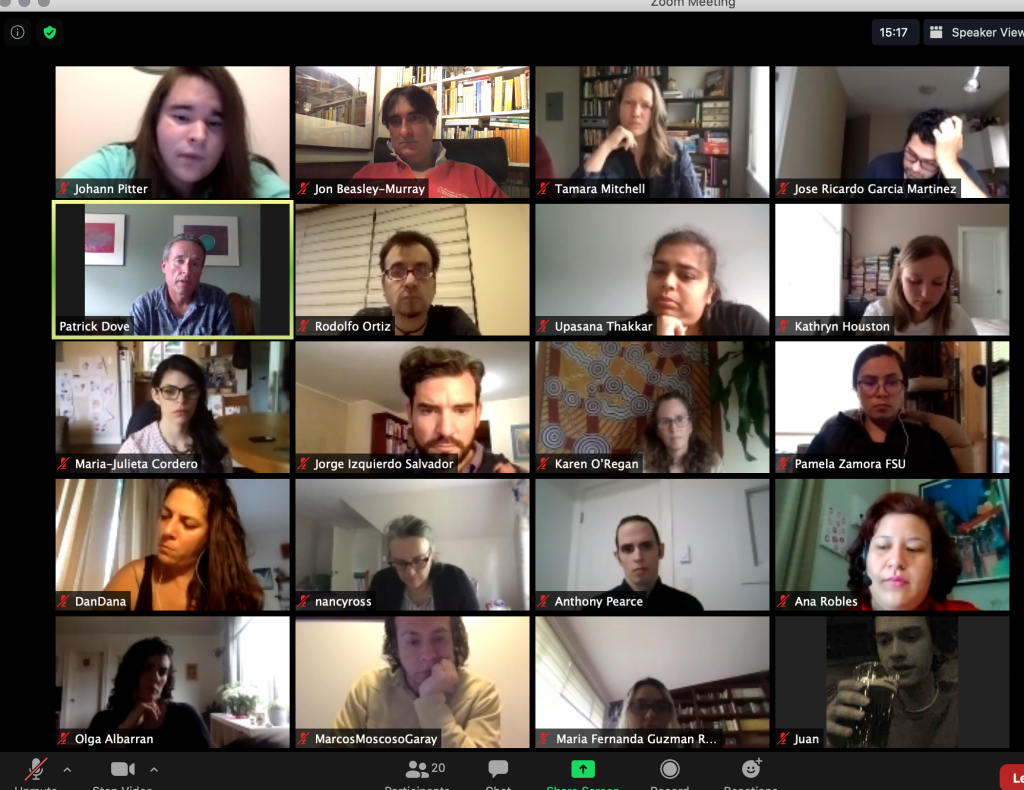
 For May 27, we will be talking with
For May 27, we will be talking with 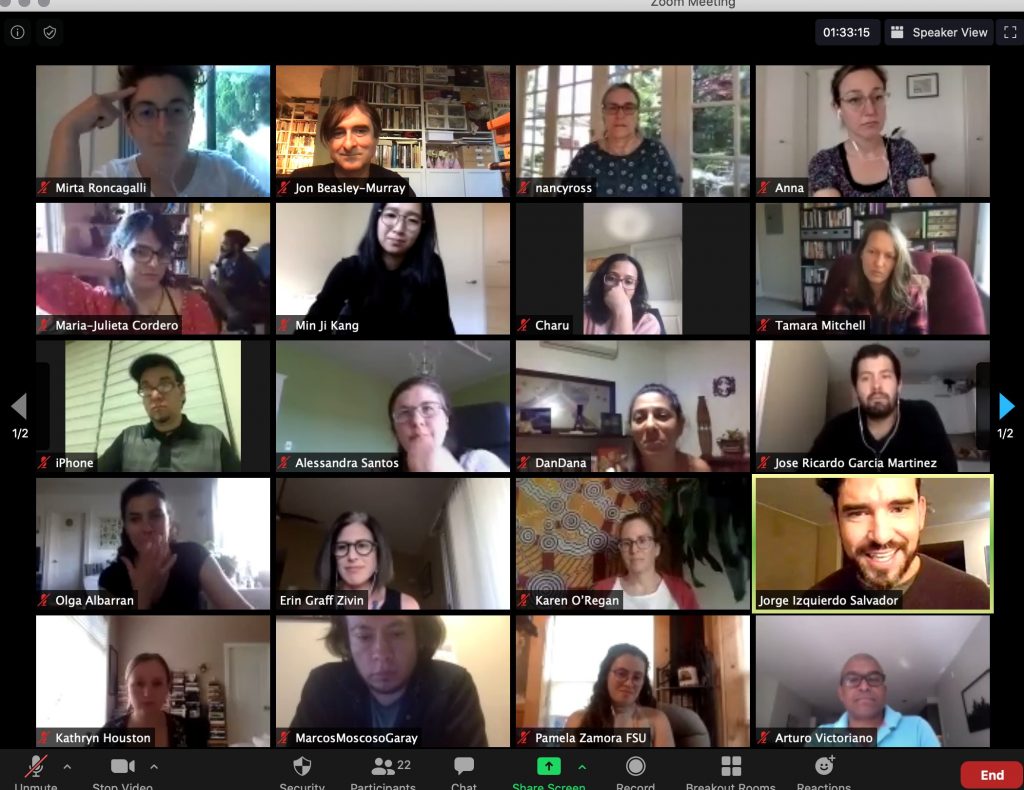
 On May 6, we were pleased to host our first special guest,
On May 6, we were pleased to host our first special guest, 